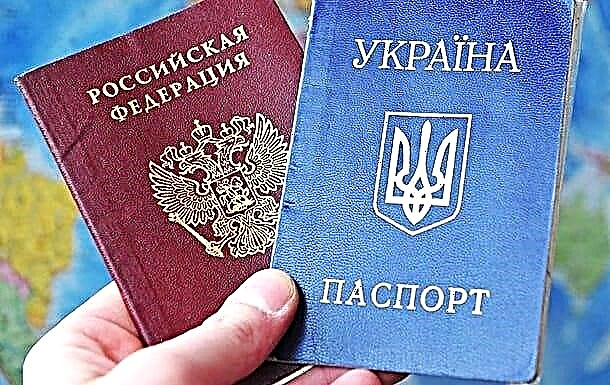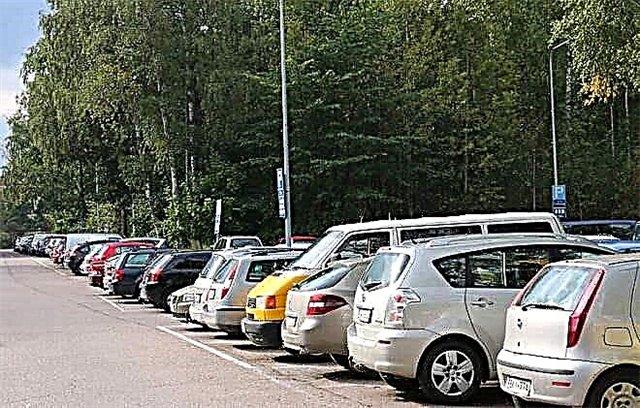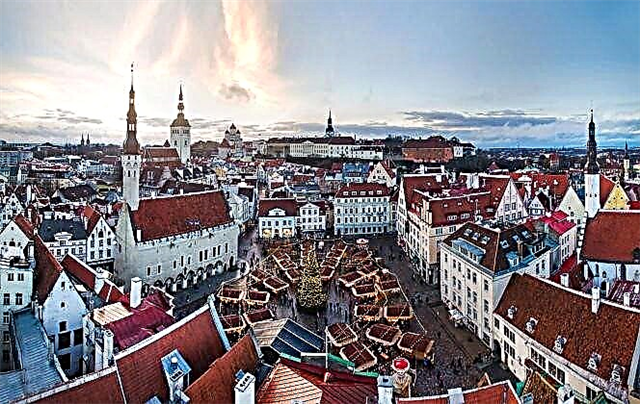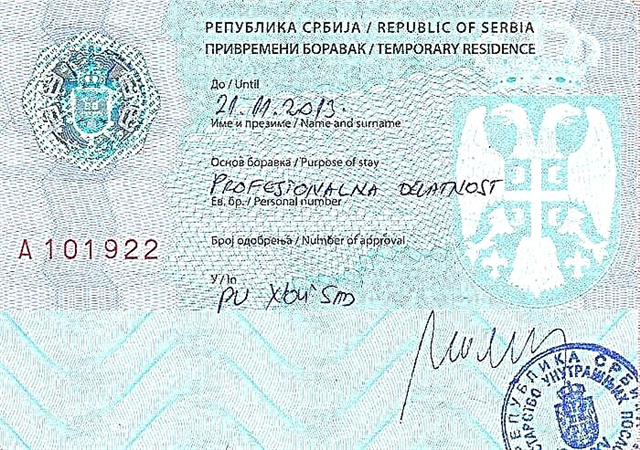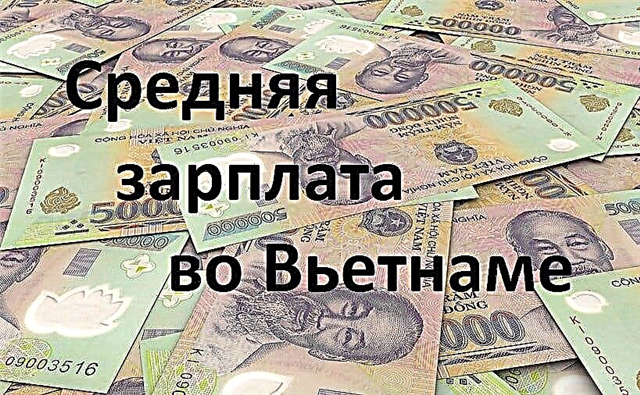Thanks to the comfortable living conditions in Bulgaria, an increasing number of Russians are thinking about purchasing real estate in the republic and moving to permanent residence. However, before making such a decision, it is important to study the features of the structure and functioning of the country's main social institutions. Accession to the European Union became a prerequisite for the fact that the education system in Bulgaria has become qualitatively higher than in the post-Soviet countries, and the diplomas received in the republic are now quoted throughout Europe.

Education in Bulgaria
The cost of studying in private educational institutions in Bulgaria is lower than the average in Europe. However, for foreign citizens, any education in Bulgaria in most cases is paid, and not only in universities, but also in preschool institutions and schools.
At the same time, studying in Bulgaria has a lot of advantages:
- high probability of admission to an educational institution, since the level of knowledge of applicants is not checked;
- the possibility of education in one of three languages - Russian, English or Bulgarian;
- it is quite easy for graduates of Bulgarian universities to find a job and stay in the country.
According to Russians, Bulgarians are very friendly towards visitors, both fellow practitioners and teachers, so education in Bulgaria usually goes without problems in this regard.
Levels of the education system in Bulgaria
The structures that make up the education system in the Bulgarian Republic include institutions:
- Preschool.
- General education:
- primary school - grades 1-4;
- gymnasium school - 5-7 or 5-8 grades.
- Secondary or gymnasium education institutions - grades 9-12.
- Higher schools.
Education from the 1st to the 12th grade is called general and is compulsory for everyone.
After receiving the basic course of knowledge, the student can choose a specialization and continue to study in Bulgaria at a higher school.
You can decide on a specialty already in a gymnasium school by enrolling in one of the profile branches:
- sports,
- creative - art, culture,
- special - technical, agricultural, food.
At the legislative level, school education is regulated by the Law on Public Education. The academic year generally lasts from September 15 to June 15, the first semester ends on February 10. However, these dates are being adjusted for the holiday weekend. For example, in the current academic year (2018-2019), the autumn holidays of schoolchildren and gymnasium students took place from November 1 to 4, Christmas holidays will last from December 22 to January 2, spring - from March 30 to April 7 (from April 5 for students on the 12th class), and the first semester will end on February 5.
Educational institutions are both public and private. As a rule, everyone is accepted there, only for citizens of Bulgaria education in schools will be free, and for migrants - paid. A public institution will be cheaper (100-300 euros / year), compared to a private one (up to 2000 euros / year).
Kindergarten as an obligatory stage
Preschool education in Bulgaria is compulsory: before going to school, children must attend a preschool for 2 years. Parents can choose a child-friendly garden - wellness or specialty, full-day or pre-lunchtime, public, private or public.
The most popular are private kindergartens, where the child spends the whole day. Meals are three times a day, paid separately. Daytime sleep is provided.
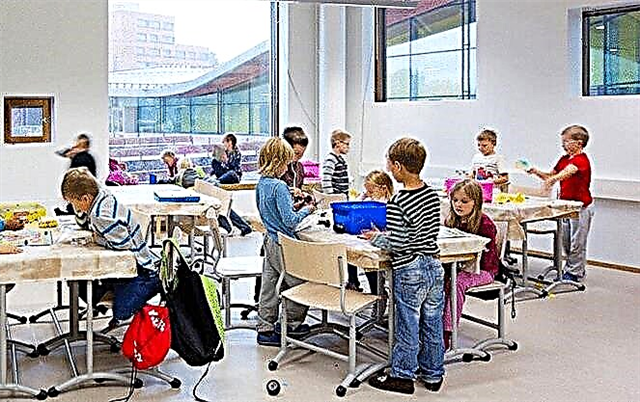
In private public kindergartens, there is no age grading - children study in mixed groups; in state institutions from September 1 to June 1, children are united in groups according to age, the group becomes prefabricated only in the summer.
Basic education in Bulgarian schools
In Bulgaria, school education is regulated by the Law on Public Education. Basic education compulsory for all at school is divided into three stages: primary, pro-gymnasium, gymnasium. After the end of each of them, exams are to be passed.
The grading system in Bulgarian schools is 6-point. In this case, the six is considered the highest score (like the Russian 5 with a plus).
Those who finish the school year with only sixes will receive all sorts of awards and congratulations.
Children begin to learn English from the 2nd grade, and from the 5th grade another foreign language is connected, most often German or Russian. Schools work in Bulgaria 5 days a week.
It is not difficult to arrange a child in an educational institution: first, parents choose a suitable school, then they submit an application to the Department of Education at their place of residence. This method is valid until the 7th grade, in the future it will be necessary to register on the website of the Ministry of Education.
In addition to the application, foreigners need to prepare a school leaving certificate with grades, received at home and legalized by the Ministry of Education. The full list is to be confirmed at the school.
You may also need:
- medical certificate;
- resume from school;
- diary;
- a document confirming the passing of exams with the received points.
Features of the higher education system
Bulgarian higher education institutions are distinguished by academic autonomy, that is, independence in the development of curricula and training programs. There are private and state universities.
Types of higher schools:
- Bulgarian universities. Bachelors, masters and doctors are trained. They have a professorial academic staff. Habilitated doctors (with the highest academic qualifications following the PhD) read 70% of the lectures. There are several majors in 3-4 or more major branches of science.
- Specialized universities - train specialists in one of the specific areas of science, art, physical education or military affairs. 3 grades are also available.
- Independent colleges in Bulgaria after grades 9 - provide an opportunity to obtain a professional bachelor's degree in any field.
As in all of Europe, higher education in Bulgaria is part of the Bologna Process. The system is being built on the principle of loans. In total, there are 51 universities in the country, including 42 universities and specialized institutes, 41 state and 9 private colleges.
How to enter a Bulgarian university for an applicant from the Russian Federation
The problem when entering a university in Bulgaria for Russian applicants is often the lack of knowledge of the local language. The best way to learn it is to take one-year language courses. The price of the issue is several thousand euros.
Find out how to enter a Bulgarian university and what documents you need, preferably in advance, on the website of the chosen institution. Typically a standard package is required:
- statement;
- foreign passport (copy);
- Photo;
- a certificate of secondary education with an application, where positive marks for a foreigner must be more than 62 percent;
- medical certificate of health status;
- confirmation of the availability of the necessary finances.
All documents are translated into Bulgarian and apostilled. The fee for students from the Russian Federation is higher than for residents of the European Union or Bulgarians, and on average ranges from 2 to 8 thousand euros per year.
Getting a scholarship for foreigners is an almost impossible task. But in the republic it is cheaper than in many European countries, the cost of living: about 300-400 euros per month.
Briefly about the main Bulgarian universities
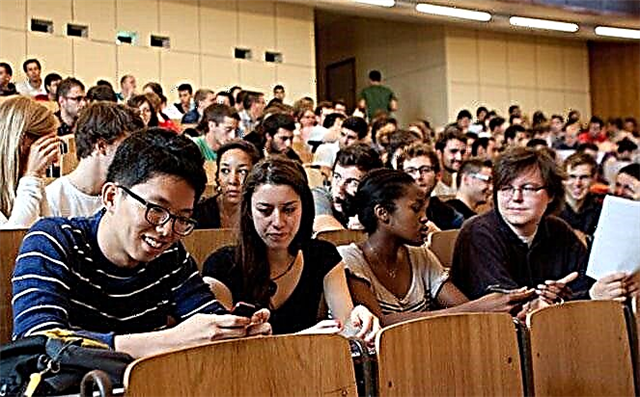
There are practically no problems with further employment for graduates of Bulgarian universities who have received a specialization in the field of pharmacy, medicine, and military affairs. Also, specialists in the following areas have decent salaries:
- maths,
- metallurgy,
- IT technologies,
- electrical engineering,
- politics.
The rating of universities in Bulgaria is led by the largest universities in the capital:
- Sofia University named after St. Clement of Orchids. The oldest university in the country, fully complies with European standards. It consists of 16 faculties and over 100 specialties.
- The Medical University of Sofia is a public institution founded in 1917, providing quality European education in the field of medicine. 4 faculties, 1 department of language training and student sports, 1 college and 1 branch in Vratsa.
- Technical University of Sofia - has the highest accreditation score among Bulgarian universities. Leading institution in the field of nanotechnology, virtual engineering, design, robotics. It consists of 14 faculties, as well as 3 colleges and 2 specialized schools.
How much does it cost to study in Bulgaria
The most expensive universities in Bulgaria are considered to be medical, where the price of education starts from 5,000 euros per year. Studying for technical or economic professions will cost 2,000-4,000 euros / year. For example, it will cost $ 7,500 a year to get an education in Sofia, at the Medical University. At the Technical University in Gabrovo, a student will pay from $ 2,500 / year. It is advisable to check the details on the websites of specific universities.
Discounts on tuition may be provided in higher schools. Such benefits are awarded to the best students or certain categories of foreigners, for example, those who have received refugee status or who have Bulgarian origin.
There are opportunities for receiving scholarships and grants, participating in international exchange programs. Another advantage: students who come from abroad have a student D-visa, which allows them to travel freely throughout Europe, and, if desired, continue their studies in any EU country. A year later, the visa is extended on the basis of documentary evidence of continued studies.
Drawing conclusions
The education system in Bulgaria is different from that in Russia. Since the republic is a member of the EU, the standards in education and the quality of education here are European. In universities, as in all of Europe, there is a credit system of education, and the child has the opportunity to choose a direction and specialty already at school.
Education for foreigners is paid, but this is fully offset by the low cost of living in Bulgaria. You can study in Bulgarian or English. The average cost of training is about 3000 euros per year.

